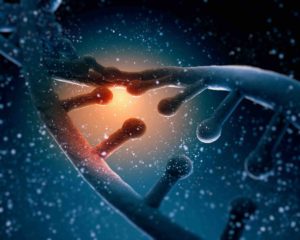Diagnosing depression – genetics and environment
In an in-depth research story, the HuffPost Australia outlined some insights as to how clinical depression is diagnosed.
Considering the Australian Genetics of Depression Research study, and the links to genetics, the article, written by HuffPost Australia, Associate Editor, Emma Brancatisano, titled, How does a person come to be diagnosed with depression?, defines clinical depression as a mood disorder that can begin at any age, and manifest in different forms.
In writing the article, Emma interviewed and spoke with the Australian Genetics of Depression Study, Co-Lead Investigator, Professor Ian Hickie. He outlined that the diagnosis of clinical depression is like diagnosis of any other illness, and looks at the signs and symptoms of the condition.

Prof Ian Hickie explained that to treat clinical depression correctly, it is important to understand the specific cause of the disease
Speaking with the HuffPost Australia, Prof Hickie explained that to treat clinical depression correctly, it is important to understand the specific cause of the disease.
“Misunderstanding lies with recognition of the syndrome, which leads to not treating the problem seriously. If you don’t know what the specific cause or treatment is, how do you know that that is what you have?” Prof Hickie said.
“As brain science rapidly improves, the goal is to get highly personalised statements about the likely cause, and importantly, if you have it, how to treat it?
“Cause matters for treatment and for prevention. If you know things, you can do something about it,” said Prof Hickie.
Talking to diagnosis of the mental health disease, which was defined by the World Health Organization (WHO) as the “leading cause of ill health and disability worldwide” on March 30, 2017, Prof Hickie told the HuffPost Australia that depression if caused by a combination of genetic and environmental factors.
“We look at genetics in terms of how a person’s genetic makeup interacts within an environment. It is not one or the other.
“People sometimes think, rather blindly, that if you stop one risk factor, there would be no cases of depression. This is untrue. There is a vulnerability in humans to these disorders in certain environmental situations,” said Prof Hickie.
“You don’t inevitably get depression. Even in cases where it is strongly genetic, there are still a large set of environmental factors at play.”
Diagnosis of depression is a difficult task, and requires that doctors and medical practitioners look for signs and symptoms as they would with any other illness.
If you are concerned you might be living with clinical depression, or are living with clinical depression, and need help in a crisis, call Lifeline on 13 11 14, or BeyondBlue on 1300 224 636, or talk to your doctor, local health professional, or someone you trust today.
Read the full story on diagnosis depression from the Huffington Post Australia here.

